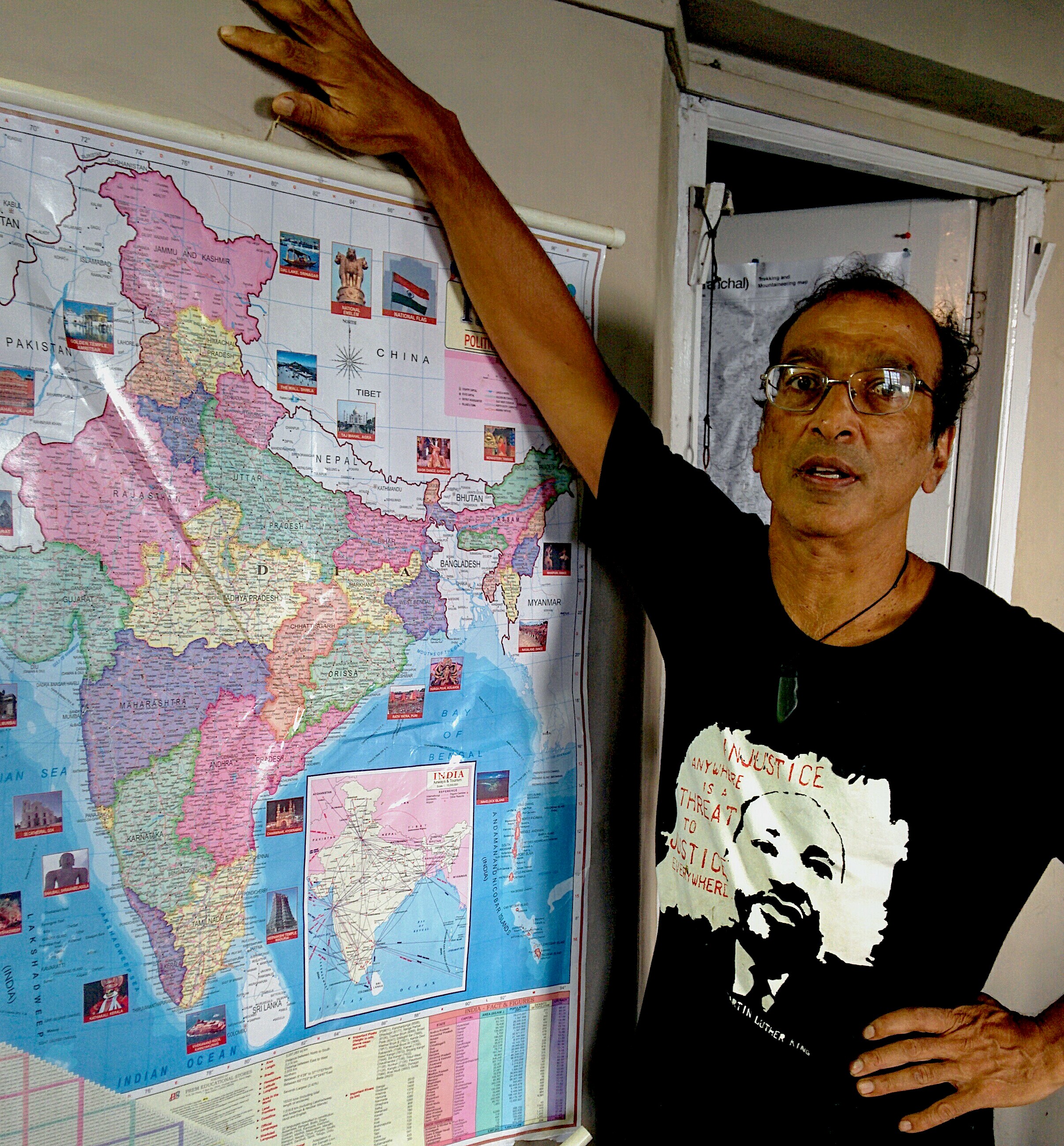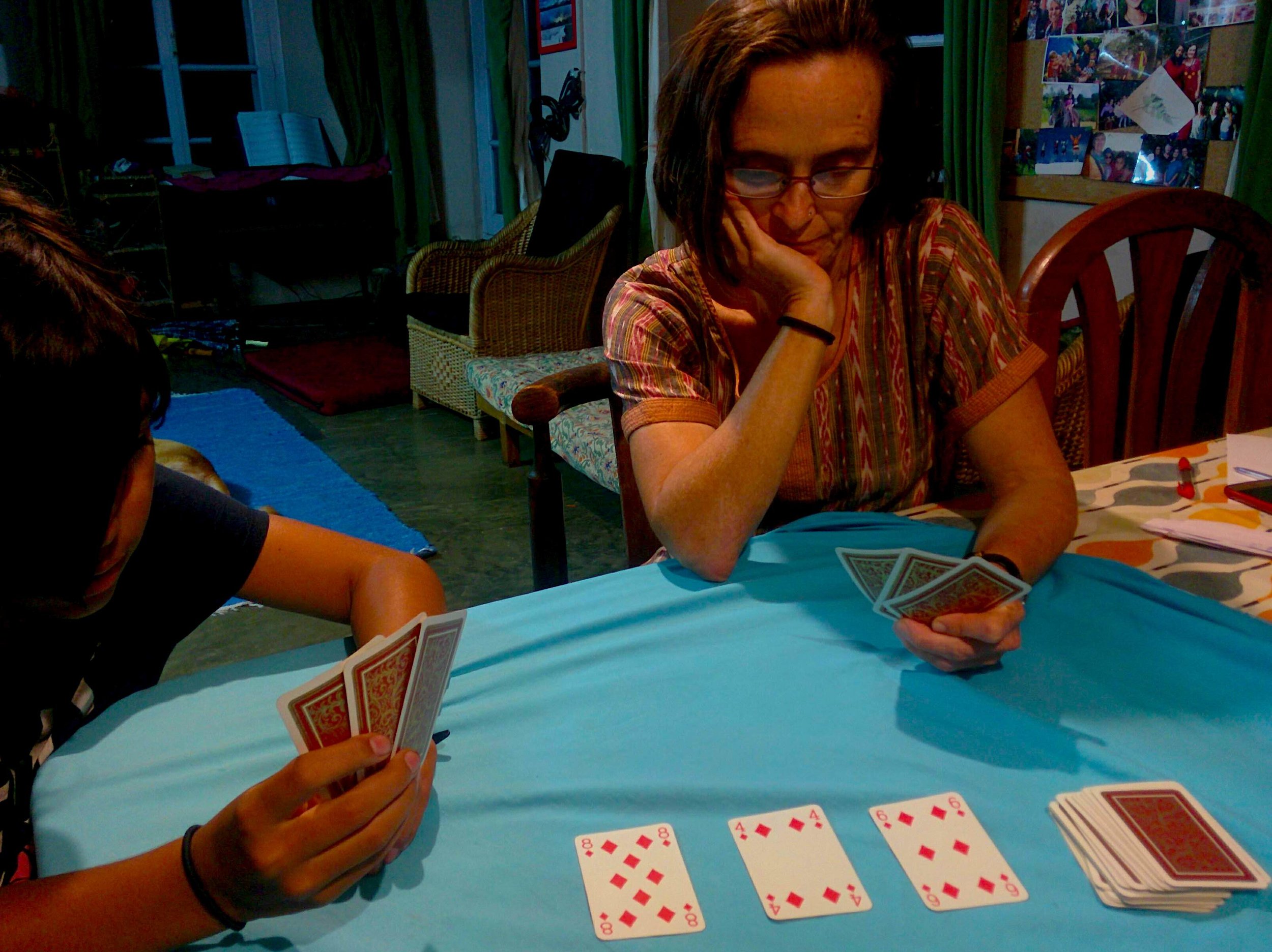One definition of a system:
"a collection of entities, that are seen by somebody, as interacting together, to do something" – Dick Morris.
"A group of entities that interact and together are seen by somebody as doing something..."
Visualize a chess board with knights, bishops queens castles and pawns strewn across it. They mean nothing individually but together this collection of interacting entities does something, has meaning. They form a game. A system. From what each piece can do-where it can and cannot go and their collective relationships to each other, emerges the meaning of this position and where the game is heading . The player determines each piece’s role, makes plans, moves... the game plays out. In any development space we define (its just our definition, not the worlds structure) we find people or institutions. These can do some things, can or will not do others. Some- most perhaps- are relatively powerless pawns, others have the authority and scope of castles or queens. They interact according to rules of engagement evolved as they pursued their strategies in their physical and social spaces. All together they shape the meaning of the current position. Plans are made, 'pieces' move, the development issue plays out.
Can we understand a "development space" (areas in which we see opportunity for change) as a chess board and the interacting people and institutions geographically and socially positioned in that space as chess pieces. Seems a good metaphor, right?
Yes- and, emphatically, No! For me, systems are useful mental constructs but not independent entities that exist in the real world. Unlike a chess game, bounded in a board in the real world boundaries change- UK was in the European union, soon it will be out. Boundaries within the board change too- in Colombia guerrilla and paramilitary movements kept changing which parts of our MSF project were no-go zones. Unlike chess pieces, people and institutions are not formally bounded within anyone’s system construct. They may relate to people and institutions beyond the board, even move outside it. And, unlike passive wooden knights and bishops the "pieces" we work amongst control their own moves and obey rules that aren’t fixed. As autonomous ‘pieces’ - each acting on boundaries, perspectives and relationships that are continuously in flux- interact real world situations evolve. Rules change too e.g. women may be allowed to vote or same-sex marriage becomes legal. In the 60's and 70's women in Afghanistan wore skirts and had their hair out. Now they are in burka. The rules changed. And NGOs, agencies or even the government are never chess players. Even powerful institutions are at most queens, always part of the game not players controlling it and unaffected by it. Real world development games, unlike chess, are messy, fluid, chaotic- and hard to analyze. How can one possibly evaluate?
Earlier this year In Afghanistan’s messy chaos I evaluated for a health NGO that wanted a an evaluation with consequences- a new role, a different game. "What have we achieved?, How can we hand over clinical services? What should we do then?”- the questions in their ToR were basically asking for a new role in a different game. A traditional evaluation might look at a situation as if it were chess- examine the board, analyze how the NGO's moves had led to the current position, probe the NGO’s future aspirations and recommend moves. But that’s treating them as a chess player and telling them how to play this game, not guiding them to a new role in a different game. I needed a different strategy and tactics to evaluate an evolving situation and help strategically ‘reconfigure the game’ for a change agent that's in, not outside, the game.
how to create a new role in a new game? Go ask the knights , bishops and pawns how they are moving, and why!
If a change agent aspires to a new role in a new configuration a utilization focused evaluation needs a consequence focused* evaluator. A game changer. Chess players are consequence focused- always after short, medium and long-term (check-mate) results from their moves. Medium-term consequences of several moves, e.g. “control the centre” are called strategy. In the short term players use tactics- one or two move methods- to achieve those strategic ends e.g. “To push his powerful pieces away from the center I'll use my knight to simultaneously attack his queen and castle”. Getting a coherent vision of a situation’s elements, relationships and dynamics and how they might be reconfigured is at the strategic level for a consequence focused evaluation. In the small picture- right now- we need a way to understand the people and institutions we're working with in order to build that strategic, systemic vision. For me Outcome Harvesting is an (not THE) evaluative tactic- method if you like- to see which pieces are moving, in which directions and understand why. OH. is used to help build a coherent picture of the system of my choosing. That system view in turn informs me and the NGO to focus the next moves.
Systems thinking with a twist of Outcome Harvesting? Yes please!
* The name of this post is the title of the thought piece Bob Williams and I will present at the 2017 AEA conference in Washington in November. I owe the term "consequence focused evaluation" to a Skype call with Bob last week.












